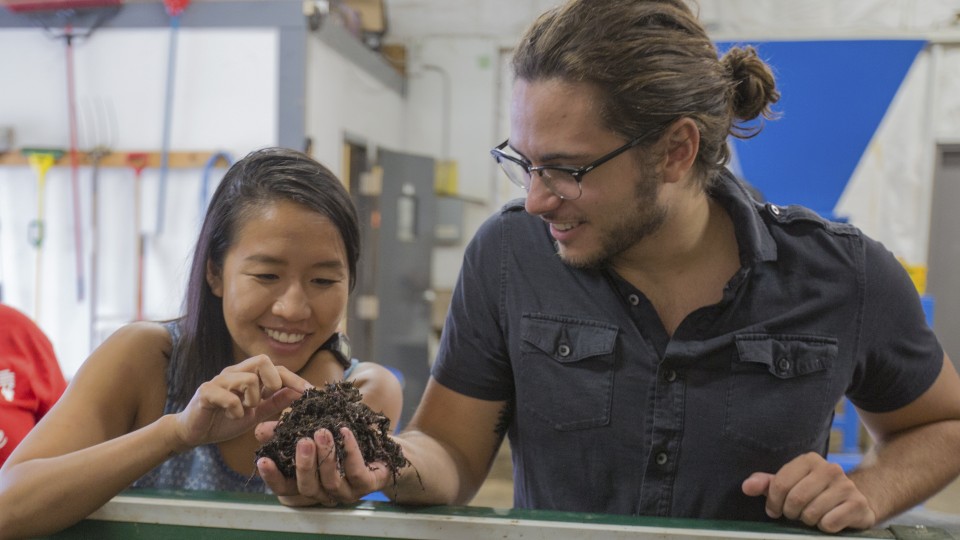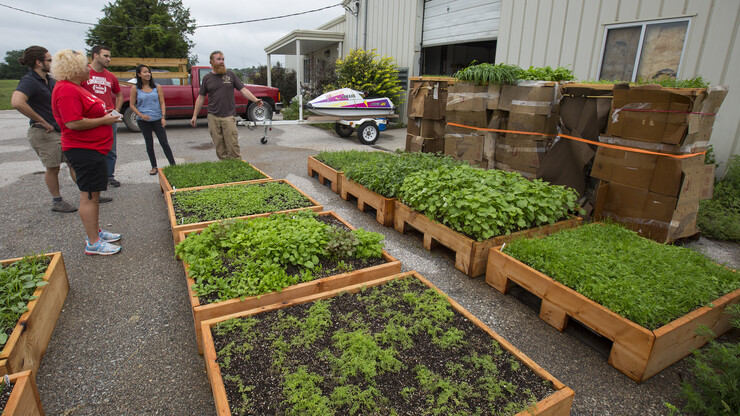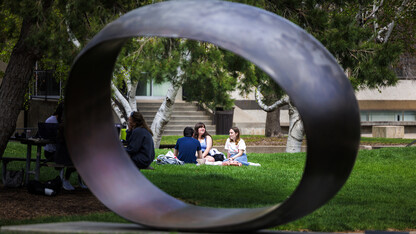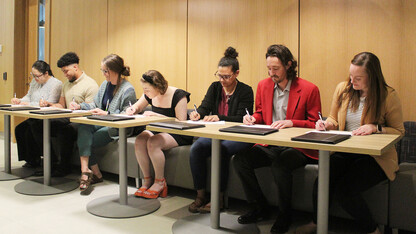· 4 min read
Composting program kicks off in the Nebraska Union

For the second year in a row, a student government-led initiative is expanding sustainability measures at the University of Nebraska-Lincoln.
After successfully eliminating the use of extruded polystyrene foam (Styrofoam) on campus in 2015, the Association of Students of the University of Nebraska’s Environmental Sustainability Committee has worked with administrators, food vendors and a new Lincoln-based company to establish a composting program within the Nebraska Union.
The program will be established in three phases — the first of which launched Aug. 1 and allows Nebraska Union food vendors to place pre-consumer food waste into special bins to be transported by Waste Management and Recycling to Big Red Worms, a new composting operation in west Lincoln. Additional phases will feature promotion and education by ASUN and expanding the program to include all compostable waste generated in the Nebraska Union.
“This is a program that makes sense in terms of us being good stewards of the natural resources available on the plant and the financial resources of the university,” said Spencer Hartman, ASUN president. “It’s going to cost less for the university to divert the food waste toward composting than haul it to a landfill. And, the waste will be converted into soil that can be used to grow more food.”
The composting project grew from a class project completed in spring 2015 by students Melissa Allen, Heaven Hulshizer, Sydney Lawton and Erika Roan. Enrolled in Environmental Studies 319, the students completed a waste survey of items found in trash bags from the Nebraska Union. Results showed that 80 percent of all waste from the building was compostable and recyclable.
“Without the results from those four students, it would have been very difficult to start a composting program in the Nebraska Union,” said Prabhakar Shrestha, sustainability coordinator for UNL. “When ASUN picked up on the results, they worked to make the program a reality.”
Hartman said student government group focused on the Nebraska Union as a launching point because it is a building constructed through student fees. The composting program is also an extension of an ASUN initiative that has set a goal to make all Nebraska Union events hosted by recognized student organizations be zero-waste events.
All food vendors in the Nebraska Union have agreed to take part in the composting program.
“Not one of our vendors was the least bit apprehensive about it,” said Ryan Lahne, senior associate director of the Nebraska Unions. “Premier Catering already does something like this at Nebraska Innovation Campus, so they were able to step forward and tell the other vendors how it works and how easy it is to participate in. I think that helped them all embrace the idea.”
Workers in the university’s waste and recycling office are responsible for picking up the food waste and hauling it to Big Red Worms. Shrestha said costs associated with the compost program will be less expensive than hauling the waste to a landfill.
Big Red Worms, which is a vermicompost operation, meaning it uses worms to convert the food waste into compost, has been in operation for one year. Owner Jeremiah Picard has previously partnered with Lincoln Public Schools and Jazz in June. Picard has also started to work with Runza on the development of a food waste diversion program.
Shrestha said the partnership with Big Red Worms along with the work of volunteers recycled nearly 80 percent of all waste generated by the 2016 Jazz in June concert series.
“These programs can really make big impacts with a minimal amount of effort,” Shrestha said. “It just takes a group of dedicated people coming together to get things going in a positive direction.”
For more information on sustainability efforts, click here.









